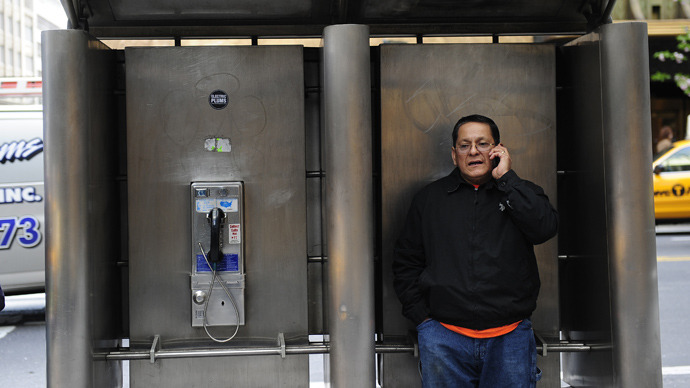FBI being sued over powerful Stingray cellphone tracking system

As cell phone users face an inundation of new evidence of the use of their phone data without their knowledge, this week’s hearing regarding the FBI tracking technology known as “Stingray” is one especially worth following.
The technology in question, known formally as International Mobile Subscriber Identity locators, allow both the FBI and, in at least several documented cases, local law enforcement the capacity to filter through a large amount of cellphone data in a given region and locate one specific signal - and thus a suspect.
What troubles privacy advocates is that such tools, in this case
one sold under the Stingray brand, operate by fooling cellphones
into believing that they are connecting to a cell tower, when in
fact they are linking up to a surveillance tool. What’s more, the
technology vacuums up data of not only a potential suspect, but all
individuals within the given region.
For its part, the US government has argued that user privacy was upheld since authorities deleted all collected third-party data after its search.
The hearing set to begin in Arizona concerns the case of Daniel David Rigmaiden, a suspect in a tax fraud scheme, who was found at an apartment complex with the help of the Stingray technology.
Organizations such as the American Civil Liberties Union (ACLU) and the Electronic Frontier Foundation have an issue not only with how the technology works - which they say violates the Fourth Amendment’s protection against “general warrants” - but also the manner in which the FBI went about using it in Rigmaiden's and several others cases.
According to the ACLU of Northern California, which obtained federal investigators' request to a judge to access the suspect’s wireless carrier (in this case Verizon) information, the bureau did not specifically request permission to deploy Stingray. As the technology collects the data of cell phone users in addition to the targeted individual, it was a potential breach of the law.
Further, the ACLU is submitting evidence in the form of an internal email string which seems to demonstrate the routine use of Stingray technology in the field by law enforcement agents, who at the same time failed to inform the respective courts of their use for at least three years. Rigmaiden is now requesting the court suppress all evidence produced by the Stingray in his case - which includes proof of wire fraud, mail fraud and identity theft for allegedly submitting more than 1,000 bogus tax returns.
Both the FBI and the Department of Justice are basing their defense primarily on claims that the charges were simply an innocent mistake by agents “using a relatively new technology.” Secondly, as the Department of Justice is expected to argue, Stingray technology does not encroach on a warrant-requiring search as cellphone use does not come with a reasonable expectation of privacy.
Privacy advocates, meanwhile, argue that had federal agents been
forthright in their use of Stingray, federal judges would likely
have prevented their use based on Constitutional law. Electronic
Frontier Foundation, for one, believes that technology like
Stingray allows the government to not only locate a suspect using
their wireless signal, but to also search a home based on that
location data.














